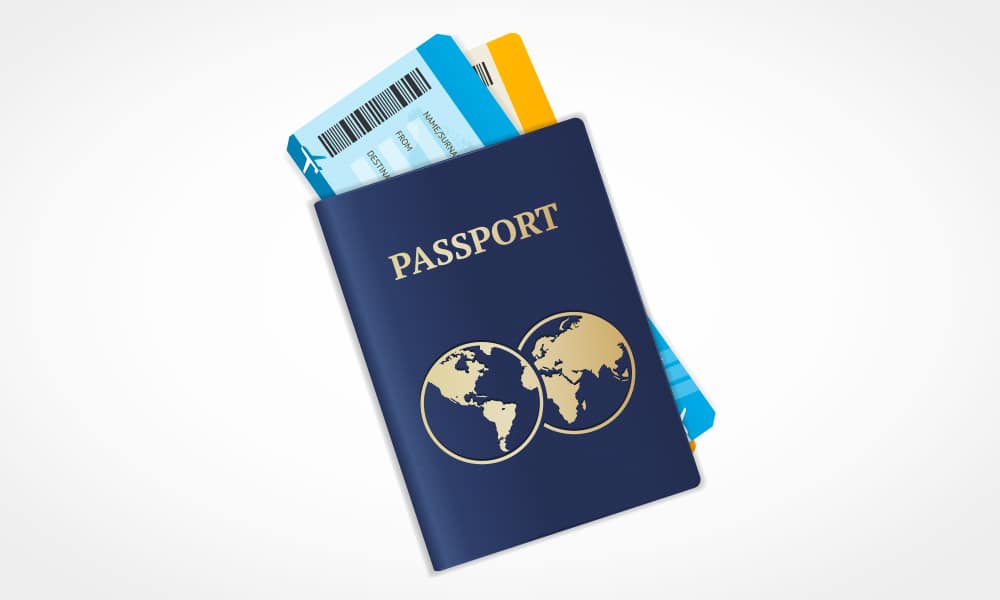


Does any of the traveller have any pre-existing medical condition like BP, diabetes etc? See what it means ›
Now covers COVID-19
What is Travel Insurance?
Travel insurance is a special short-term insurance product to financially protect you from many risks faced while travelling for different purposes. Be it a trip abroad or within India, or it is an international degree from Europe, travel insurance ensures that your trip goes smoothly. If you wish to understand what is travel insurance or simply want to understand the travel insurance definition, then this blog covers all your doubts.
Travel Insurance Plans on PolicyBazaar#1
- Individuals
- Sr. Citizens
- Students
Travel Insurance Meaning in India
Trip or travel insurance protects different kinds of journeys from financial losses. These are mostly caused by medical expenses, cancelled flights, lost luggage and several other losses that any person can face during their trip. Travel insurance companies in India offer a range of benefits, starting from basic medical coverage to comprehensive plans with add-on benefits.
Travel insurance is not limited to international travel only, you can also buy domestic travel insurance policy if you want to travel safely within India. You can buy travel insurance for a very short journey (even one day) or for long stay such as 1-2 years. Depending on your journey, you can pick from many types of travel insurance plans.
Benefits of Travel Insurance
Travel insurance benefits you by ensuring your financial safety throughout your trip. You may be a retired woman, finally setting out to explore Europe, or you may be a digital nomad planning to work abroad in a few months- travel insurance will cover you from the day you leave India until you are abroad and back. Some of the risks covered by travel insurance include:
- Medical expenses (cashless hospitalisation as well as reimbursement)
- Personal accident (covers total/partial disability & insured's death)
- Emergency evacuation ( repatriation
- Baggage delay and baggage loss
- Flight delay and flight cancellation due to specific reasons
- Flight hijack
- Loss of passport
Travel insurance coverage is also beyond financial. Most insurers also offer 24X7 emergency assistance in case of any emergency.
Types of Travel Insurance in India
Millions of Indians travel abroad each year. But not all journeys are the same, and not all travellers need the same protection. Someone going for a week-long conference may need some basic coverage, whereas someone planning an adventurous getaway in New Zealand may need beyond regular coverage.
For this reason, Indian travel insurers offer a range of customised plans that anyone can easily find. You can easily find the perfect travel insurance plan from among these:
-
Domestic Travel Insurance
- A domestic travel insurance offers your trip protection within the borders of India.
- Domestic travel insurance plans cover some common travel issues like loss of air/rail ticket, theft of luggage, personal accident, emergency family travel, and more.
-
International Travel Insurance
- Made for journeys abroad & covering over 120 countries.
- International travel insurance plans cover your journey from India, during your activities and stay abroad and even when you are returning.
- It is also mandatory for many countries, especially Europe's Schengen ara. It has some of the most famous tourist destinations in the world, including Paris, Rome, & Amsterdam. To visit these places, you must have a Schengen visa, which requires proof of Schengen travel insurance.
- Common travel insurance benefits of international travel insurance include trip cancellation, flight delays, bounced hotel bookings, passport loss, emergency medical hospitalisation, adventure sports coverage and more.
-
Student Travel Insurance
- Indian students who get admitted into accredited international colleges/universities require extensive support and financial safety.
- Facing an emergency on top of living expenses abroad, college tuition fees, can be a huge setback on any student's emotional and physical health.
- Student travel insurance plans in India offer comprehensive coverage beyond medical emergencies- they offer coverage for things like compassionate visit, sponsor protection, study interruption, bail bond, laptop loss and more.
-
Senior Citizen Travel Insurance
- Most travel insurance plans don't cover travellers beyond 60-70 years. However, senior travellers are also at a higher risk of facing health and financial emergencies abroad.
- Senior citizen travel insurance plans cover parents, grandparents, and elderly visitors who wish to travel abroad for various reasons.
- The premium is usually higher than regular trip insurance plans, but it provides the necessary support to seniors over 70 in case of medical, travel-related and assistance-related emergencies.
-
Single Trip Travel Insurance
- This is among the most popular travel insurance plan, it covers your single journey from and back to India.
- This plan offers comprehensive coverage, such as coverage for medical conditions, loss of travel documents, personal liability, flight and baggage-related issues and more.
- It is best for people who take only one or two trips abroad or do not travel as frequently.
-
Multi-trip Travel Insurance
- Annual multi-trip insurance is especially designed for frequent travellers who go abroad multiple times. It has all important coverages in case you're in a medical, flight or stay related emergency.
- Digital nomads, business travellers, corporate employees, etc., can buy annual travel insurance.
- AMT or annual multi-trip insurance plan is valid for a year, with a maximum trip length limit ranging from 30 to 60 days.
-
Family Travel Insurance
- Families that travel together stay together. But you need to take care of yourself and your family's safety even before the trip starts.
- Family travel insurance covers you, your spouse and your dependent kids. Many plans also offer coverage for parents-in-law, making it super easy to secure the whole family under one plan.
Is Travel Insurance Mandatory?
Travel insurance is mandatory to visit over 40 countries in the world, with many others following suit. These countries realise the risks and burdens on tourists who may fall sick here or face a situation which costs them a lot of money.
The healthcare costs abroad are significantly higher than India's. Sadly, not every tourist is aware of this until they see a long bill, which may even cost their entire trip.
Governments across the world realise the burden it can have on their own economy as well as the visitor, so mandating travel insurance is often the best thing they can do.
But does this mean that you can skip travel insurance if it's not mandatory?
Well, if you think you have sufficient financial support or an alternative safety net like a credit card travel insurance, you may be somewhat safe. But it is still smarter and extremely affordable to spend a few thousand rupees on a holiday insurance policy.
What Does Travel Insurance Cover?
Travel insurance companies in India offer a wide range of options. You can even find a lot of rare but helpful coverage offered by a few insurers, proving just how much thought goes into designing the best travel insurance plans:
- Medical Emergencies: You will be covered for hospitalisation, emergency evacuation and several other crucial health expenses if you fall sick or get injured abroad.
- Flight/Airline Emergencies: From missing a connecting flight to waiting endlessly for a delayed flight, you will get compensated for your bad experience and inconvenience.
- Baggage Delays/Loss: Your insurance will cover daily essentials until your baggage is returned.
- Emergency Assistance: Most insurers offer dedicated helplines and 24X7 global support. All you need to do is call them for help.
Why You Need Travel Insurance: Real Risks, Real Reasons
Still feel that you can do without trip insurance? Think again:
- France, Italy, Germany, Switzerland, and at least 30 more countries need travel insurance proof before they issue your visa.
- Rising disruptions across the world, like political unrest, flight delays, natural disasters, pandemic and contagious diseases are beyond anyone's control. Travel insurance covers these and more.
- High medical costs abroad can cost you lakhs of rupees. This is often an entire person's trip budget.
- People who already have a disease are at a higher risk of falling ill abroad. Insurers now offer coverage for pre-existing diseases or PED, an extremely popular travel insurance add-on.
How to Buy Travel Insurance?
You can buy travel insurance online by comparing them on Policybazaar.com. This will let you check what everyone is offering and understand your requirements. Make sure to keep the following in mind:
- Buy a plan at least a few weeks before the trip. It will help you with pre-trip issues like trip cancellation or refund of visa fees.
- Choose a sufficient sum insured (the maximum amount paid by the insurer) depending on the country and risks you may face there.
- Use a travel insurance premium calculator to get an estimate of how much travel insurance costs.
- Check real reviews on independent blogs/vlogs to learn about an insurer's claim process, how to file claim with them(mobile app or toll-free number), CSR (Claim Settlement Ratio) and overall customer experience.
- Pay special attention to add-ons- these can save your day. From adventure sports to enhanced PED coverage, you can be protected despite adversity.
What Travel Insurance Won't Cover
Your travel insurance does not cover every situation, as it too has limitations. These are clearly mentioned in the ‘Exclusions' section of policy wordings. These are situations that are strictly not covered by the insurer. For example:
- Most plans won't cover pre-existing diseases, but if you opt for a PED add-on, then you can be covered.
- No insurer covers adventure sports or winter sports, but if you have an adventure sports optional, you will be covered for most of them up to a certain capacity.
- Pregnancy, maternity-related care are not covered by policies, but most student travel insurance plans offer these benefits to Indian students who are enrolled in a long-term study program.
- Loss of a gadget is usually not covered, but several insurers offer loss of a laptop and other expensive gadget coverage.
What is Travel Insurance: FAQs
-
Q: What is trip cancellation in travel insurance?
Ans: This is a travel insurance benefit which reimburses you in case your trip is cancelled even before it starts. This can be due to your or your travelling companion's sudden hospitalisation, death in the family, sudden illness, a natural disaster or more. -
Q: What is trip interruption coverage in Travel Insurance?
Ans: Trip interruption cover helps you claim the unused portion of your trip, including hotel, flights and even bookings for certain events. This benefit is only applicable when you are forced to cut your trip short for certain reasons. -
Q: Will my travel insurance plan cover Tsunami or other natural disasters?
Ans: Most travel insurers offer trip interruption cover in case you are stranded because of a natural disaster. However, it depends on the insurer. -
Q: Will my domestic travel insurance cover me in case I miss my train?
Ans: Yes, some domestic travel insurance also covers missing trains or flights. -
Q: What happens if my holiday insurance is not enough abroad?
Ans: You will have to pay out of pocket. It is best to have good coverage (higher sum insured) to avoid such scenarios. -
Q: What is annual multi-trip travel insurance?
Ans: AMT or annual multi-trip insurance is an annual plan for corporate or frequent travellers. It is valid for multiple trips for a year. -
Q: What are the best travel insurance companies in India?
Ans: There is no criterion to define the best travel insurance company in India. You should find a plan which meets all your requirements and budget. -
Q: What does airline travel insurance cover?
Ans: Airline travel insurance is a part of flight-related coverage offered by several comprehensive policies. It can cover flight delays, baggage delays, air accident cover, flight hijacking and more. -
Q: What is repatriation insurance?
Ans: Repatriation insurance covers the high cost of returning a traveller’s mortal remains in case of their unfortunate demise abroad. Medical evacuation and repatriation insurance is a crucial part of most overseas travel insurance plans. -
Q: What is travel medical insurance?
Ans: Travel health insurance or travel medical insurance provides necessary coverage for medical expenses. It can cover hospitalisation, OPD, ambulance charges, diagnostic charges, surgery expenses, and even medication in some cases. -
Q: What is travel insurance for a Schengen visa?
Ans: It is a special travel insurance product designed for Indians visiting the Schengen territories. It is a mandatory requirement to give proof of travel insurance to support your Schengen visa application. It should have a coverage of a minimum of EUR 30,000 and be valid throughout the Schengen zone. -
Q: What is the best travel insurance for seniors above 70-80?
Ans: Seniors above 70 or 80 years should buy a senior citizen travel insurance, which offers them the required protection. -
Q: What travel insurance covers cancellation for any reason?
Ans: CAFR, or cancel for any reason, is a special benefit offered by insurers abroad. In India, this benefit is only offered by some flight-booking websites. -
Q: What does travel insurance cost?
Ans: The cost of your travel insurance premium will vary with your destination, age and trip duration. You can find trip insurance plans on Policybazaar.com starting INR 18/day. -
Q: What credit cards include travel insurance coverage?
Ans: Several credit cards provide travel insurance benefits in India, including HDFC Regalia credit card, ICICI Travel Card, Standard Chartered Priority Visa Infinite credit card and more. -
Q: What does travelers' insurance cover?
Ans: Travel or traveller’s insurance offers necessary financial coverage to travellers going abroad for various reasons -
Q: What insurance do I need for skiing?
Ans: You should buy a travel insurance policy with adventure sports cover if you wish to ski. However, your policy won't cover you if you are skiing professionally or semi-professionally.
STANDARD TERMS AND CONDITIONS APPLY. For more details on risk factors, terms, and conditions, please read the sales brochure carefully before concluding a sale.
Policybazaar Insurance Brokers Private Limited, Registered Office - Plot No.119, Sector - 44, Gurgaon, Haryana - 122001 | CIN: U74999HR2014PTC053454 | Policybazaar is registered as a Composite Broker | Registration No. 742, Valid till 09/06/2027 | License category - Composite Broker | Contact Us | Legal and Admin Policies
*Price shown is for a 180 day trip to Thailand with 50 thousand dollar coverage for an adult of age 25 years








































